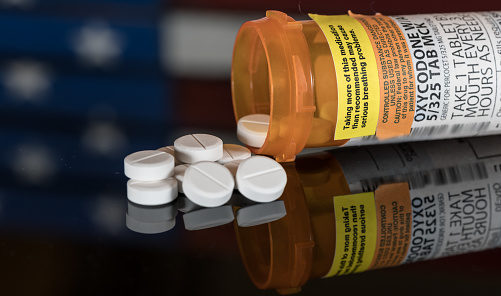Specifically, the researchers concluded, “Use of NSAIDs was not associated with an increased risk of 30-day mortality or adverse outcomes in patients infected with SARS-CoV-2 in this cohort of all Danish residents who tested positive for SARS-CoV-2.”
They did caution, though, that “the well-established adverse effects of NSAIDs, particularly their renal, gastrointestinal, and cardiovascular effects, should always be considered, and NSAIDs should be used in the lowest possible dose for the shortest possible duration for all patients.”
The study included patients who tested positive for COVID-19 between Feb. 27 and April 29. NSAID users were defined as patients who filled an NSAID prescription up to 30 days before their COVID-19 test; they were matched to four non-NSAID users based on the calendar week of their test date, age, sex, relevant comorbidities, and use of selected prescription drugs. The primary outcome was 30-day mortality; other outcomes were hospitalization, admission to the intensive care unit (ICU), mechanical ventilation, and acute renal replacement therapy.
Final analysis included 9,236 COVID-19 patients (median age, 50 years; 58% were female), of whom 248 (2.7%) filled an NSAID prescription. The 30-day mortality rate was 5.8% (n=535). Matched analyses found that NSAID users were not at an increased risk for 30-day mortality (risk ratio [RR]=1.02; 95% confidence interval [CI], 0.57 to 1.82; P=0.95; risk difference [RD]=0.1%; 95% CI, −3.5% to 3.7%; P=0.95), hospitalization (RR=1.16; 95% CI, 0.87 to 1.53; P=0.31; RD=3.3%; 95% CI, −3.4% to 10%; P=0.33), ICU admission (RR=1.04; 95% CI, 0.54 to 2.02; P=0.90; RD 0.2%; 95% CI, −3.0% to 3.4%; P=0.90), mechanical ventilation (RR=1.14; 95% CI, 0.56 to 2.30; P=0.72; RD=0.5%; 95% CI, −2.5% to 3.6%; P=0.73), or renal replacement therapy (RR=0.86; 95% CI, 0.24 to 3.09; P=0.81; RD=−0.2%; 95% CI, −2.0% to 1.6%; P=0.81).
The researchers noted that one limitation of the study was the possibility of exposure misclassification because not all patients who fill an NSAID prescription may use the drug regularly; they also noted that NSAIDs are typically prescribed to healthier patients because of their potential side effects, “but on the other hand may also be prescribed for early symptoms of severe COVID-19.”
Credit: Original article published here.










